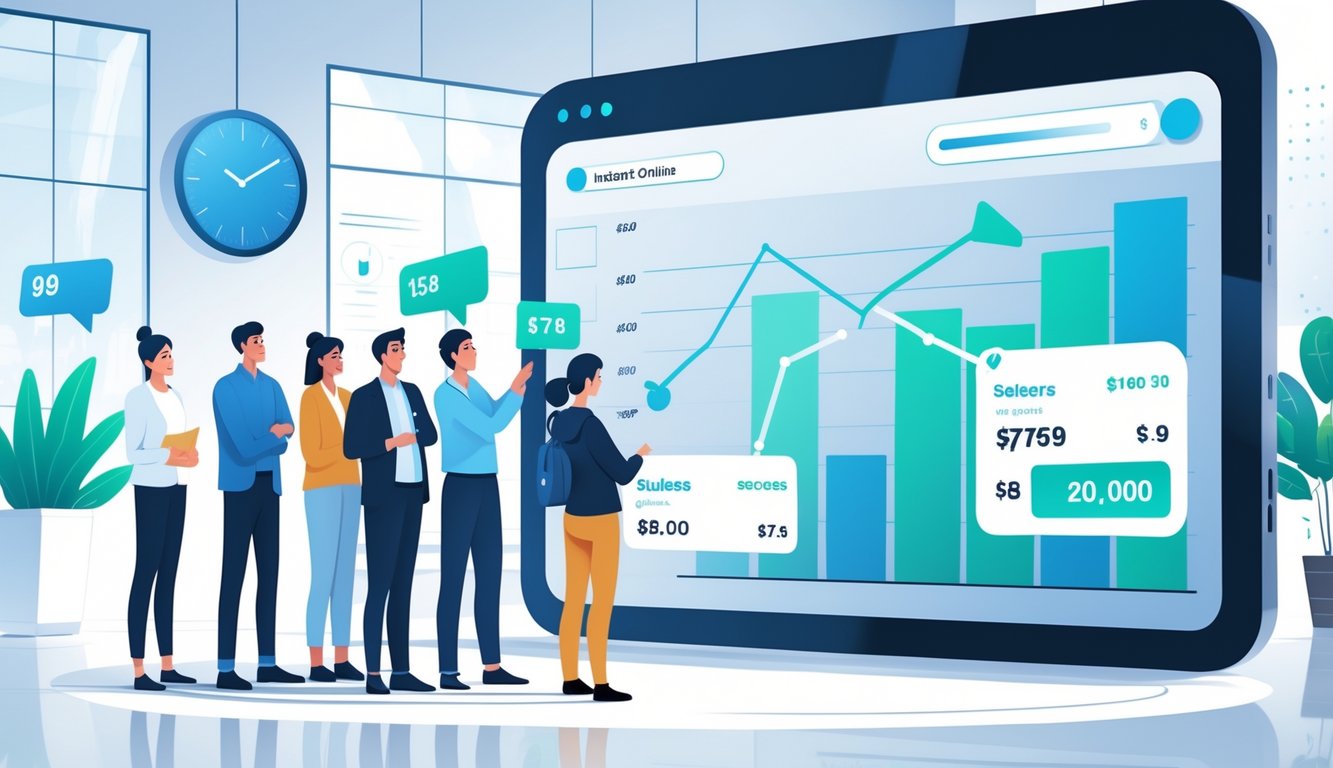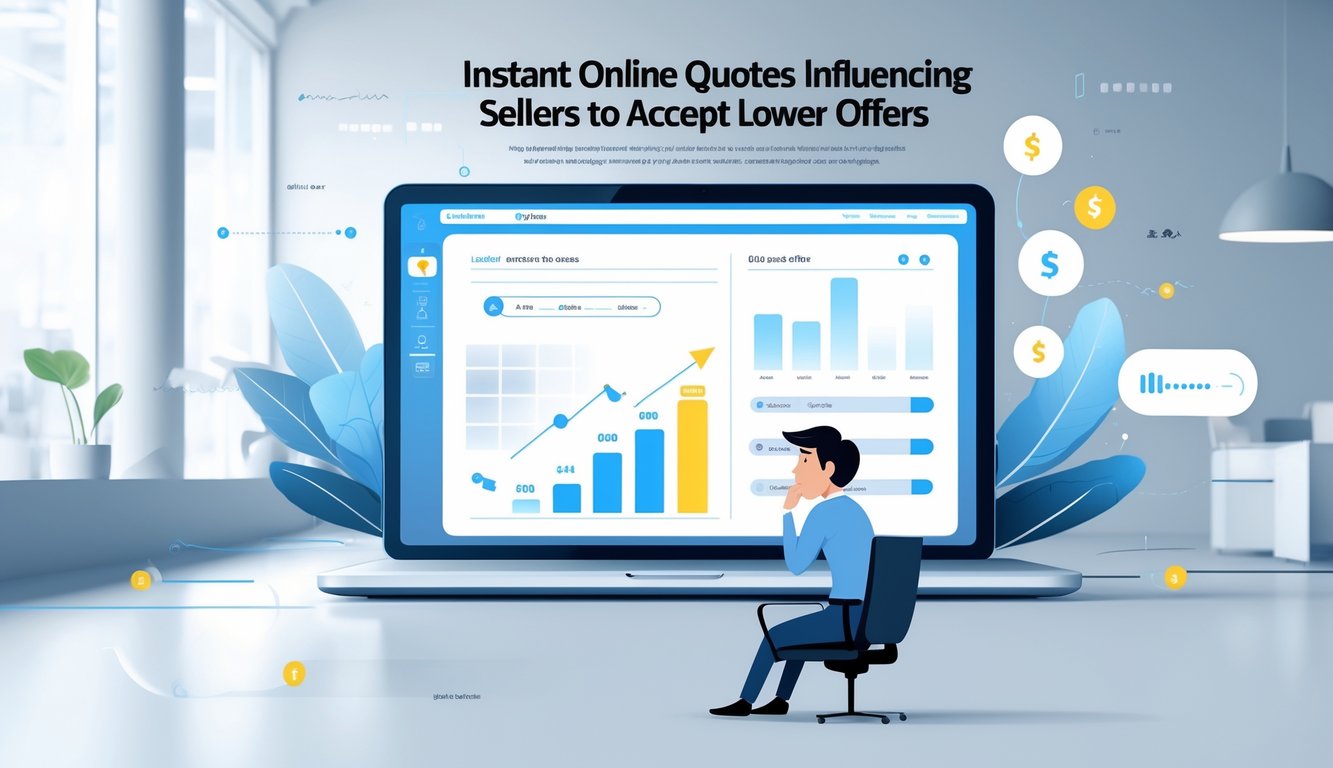
Every single day, I’m bombarded by those “get an instant offer for your car in 60 seconds” ads. Like, who hasn’t? If you’re selling a used Corolla or, honestly, anything with four wheels, you’ve seen them. Let’s just say online instant cash quotes for cars? They’re basically a pressure cooker for sellers, cranking out numbers way lower than what you’d get from a regular person off Craigslist. My neighbor fell for one last month—clicked a link, got a quote, and poof, almost three grand gone compared to Blue Book. That “convenience” everyone brags about? Feels more like a shortcut for dealerships to pad their margins. Retail My Ride actually has a whole breakdown of why private sellers lose thousands. And can we talk about those awkward dealership “inspections” where you stand around pretending you don’t know you’re being lowballed?
But hey, I get it. Sometimes you just want out. “One more week and I’ll get a better offer”—sure, but that’s not how life works. People I know have caved and sold below market just to get it over with. Not a secret, not a conspiracy, just relentless, soulless algorithms nudging you to quit. The Better Business Bureau, via Allstate, says online purchase scams cost people money 79% of the time, so when you’re staring down that instant offer, are you cashing out fast or just pressing the “hustle me” button? And now every insurance mascot gets a “certified used” badge, but the only guarantee I ever see is a DMV line that never ends.
Understanding Instant Online Quotes

It’s always these pop-up numbers, right? You’re just browsing, minding your business, and boom—one click, here’s a price. Sometimes it’s weirdly high, sometimes insultingly low, but always just fast enough to make you second-guess what you even wanted. I catch myself staring at the screen, wondering if there’s a real person somewhere, or if it’s just a bunch of code pulling prices out of thin air.
Overview of Instant Quotes Technology
You dump in your info, barely hit “submit,” and there it is—a quote. I’ve seen these platforms churn through specs with rule-based engines, scraping together something that looks official but feels off. And honestly? Feels like half the time it’s running on old data or weird market trends nobody actually understands.
From what I’ve seen, these systems spit out numbers in seconds, layering AI guesses on top of whatever you typed in. It’s not magic. It’s more like roulette with your wallet. Forrester said in 2023 that about 62% of mid-sized retailers rolled out instant quote tech, hoping it’d speed things up. Most of them? No clue how the numbers even got there. Anyone actually auditing these things? Doubt it.
How Quoting Platforms Work
Nobody ever brags about the backend. It’s just this pile of APIs, data integrations, and pricing engines glued to market data feeds. Sometimes there’s a file upload that looks harmless, but you know it’s just mining every detail to squeeze your offer. QuoteFlare (if I’m remembering right) advertised “robust quoting everywhere,” but a friend told me their margins tanked after trusting an instant quote—the algorithm tanked prices during a random market dip. Oops.
And the “personalized” bids? Come on. It’s all pre-set logic. Rule tables, dynamic scripts, spot checks—none of it cares if your product is weird or unique. I’ve watched it compare Italian leather sofas with cheap plastic chairs and nobody batted an eye.
Advantages of Rapid Sales Quotes
Speed. That’s the brag. The quote’s in your inbox before you even find your coffee. People tell me they like seeing a price right now instead of waiting for endless emails. ResponsiBid swears “real-time pricing can boost conversions and streamline your business operations,” but I’m not convinced. I lost a sale last year when the auto-quote undercut the market by 17%. Never heard from that client again.
And this “transparency” everyone loves? It’s just an illusion. Instant quotes make buyers feel in charge, I guess, but when speed wins over accuracy, sellers end up scrambling. Ever watched a quoting platform update rates mid-negotiation because someone else dropped their price? It’s like musical chairs for your profit. Quick wins, maybe, but sometimes your margins just vanish before you even realize.
The Rise of Unlimited Quotes in Modern Sales

Everyone’s sick of haggling and waiting for callbacks, but now it’s just faster, messier, and somehow even more confusing. Unlimited quotes are everywhere. They refuse to explain themselves. Nobody’s got the patience to figure out if that’s good or bad.
What Are Unlimited Quotes?
Picture this: five browser tabs open, all screaming “Get a quote in seconds!” Unlimited quotes? It’s not just rapid-fire—it’s like a hailstorm. The need for negotiation? Out the window.
Those engines never sleep. Car insurance sites? They’ll spit out a hundred price points before you even finish your coffee, all thanks to algorithms that don’t care if you skipped breakfast. A sales manager told me, “Buyers expect thirty-second pricing,” and she sounded like she’d rather be anywhere else. The practical side? People who used to guard their pricing like state secrets now just dump it online, hoping speed will trick sellers into quick deals. My Wi-Fi dies every time I try to grab three quotes at once. Coincidence? Who knows.
Influence on Sales Teams
Watched a sales rep nearly throw their phone—twenty auto-generated quote requests before noon, not one with a human touch. If this is “selling smarter,” why does everyone look exhausted? High-volume quoting systems chew through CRM data and spit out offers all day, but do they ever actually close anything?
Quotes fly, sometimes right, sometimes just another API mistake. Conversion rates? All over the place. Managers love to cite studies about more leads, but half those leads ghost the second a bot pings them. Small talk? Dead. Lusha says customer listening matters more than all this automation, but I doubt anyone reads that. And if I hear “pipeline” one more time, I’m unplugging my router.
Streamlining the Sales Process
Not gonna lie, “streamlined” is a joke. It’s just faster and more frantic. Automations push sellers to skip real conversations and just spam out offers, hoping someone bites.
“Streamlined” now means more touchpoints, not fewer. Unlimited quote tools keep sellers on edge, triggering price changes with every tiny input. Sure, deals close faster when quotes land in seconds—at least according to some analyst’s slide deck I half-read. But my inbox is stuffed with quote confirmations for stuff I never even asked about. So much for less friction. Sales software keeps mutating, and nobody’s checking if the hamster wheel’s even spinning.
